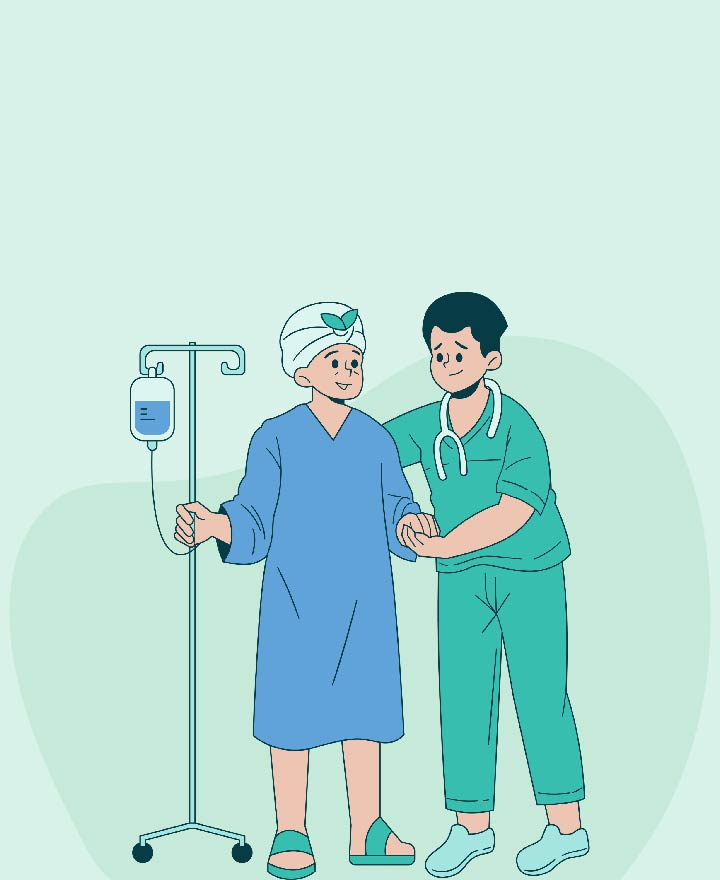

Small Intestine Cancer Risk Factors
Some diseases do not present any symptoms until they become an emergency. Small intestine cancer is one such ailment, which is usually asymptomatic, meaning it doesn’t cause any symptoms. The cancer gets diagnosed accidentally while undergoing tests for any unrelated issue. Being aware of the causes and risk factors is crucial for early detection and treatment. So, what are the risk factors of small intestine cancer? Let us find out.
What are the Risk Factors for Small intestine cancer ?
Some of the key risk factors for small intestine cancer are:
1. Age and gender
Cancer of the small intestine is found more in older people, the average age of diagnosis being 65. Men are more at risk of developing this disease than women.
2. Race
Small intestine cancer affects black people more than people of other races.
3. Inherited genetic conditions
People with certain inherited conditions like Peutz-Jeghers syndrome, Lynch syndrome, or familial adenomatous polyposis (FAP) have a higher risk of small intestine cancer.
4. Inflammatory bowel diseases
Inflammatory bowel diseases like Crohn’s disease or celiac disease affect the intestines, thereby increasing the risk of small intestine cancer.
5. Weakened immune system
The risk of small intestine cancer increases if your immune system gets weakened. This could be due to conditions like HIV/AIDS, Crohn’s disease and celiac disease, radiation therapy treatment, or medications which are given to suppress your immune system after an organ transplant.
6. Family history
If gastrointestinal cancers run in the family, you are at high risk of developing small intestine cancer.
7. Lifestyle factors
A low-fibre, high-fat diet, lack of physical activity, tobacco use, consumption of alcohol, and obesity are all risk factors.
Conclusion
Though small intestine cancer is rare, it is still crucial to understand the factors that increase the chances of getting it. This will help in taking preventive measures.
Make sure you have an active health insurance policy for financial protection against the high treatment costs of cancer. If your health plan doesn’t have an adequate sum insured, you can buy a top-up health insurance online plan or critical illness insurance cover.
One of the important components of our overall wellness is also being financially secured. Healthcare emergencies can happen any time, but a good health insurance policy can protect you from such uncertain situations. To know more about Wellness and other health related tips, visit the wellness corner.
Disclaimer: This blog provides general information and discussions about health and related subjects. The information and other content provided in this blog, website or any linked materials are not intended and should not be considered or used as a substitute for medical advice, diagnosis, or treatment. Kindly contact your doctor before starting a new medicine or health regime.
Related Articles
Cancer - Symptoms, Stages, Types & What It Is
Crohn's Disease - All You Need To Know
Know the Most Common Types of Cancer in Women
Biliary Atresia - Symptoms, Diagnosis, and Treatment
How is Chemotherapy Done - Process Explained
Published on May 30, 2025

















 Health Insurance
Health Insurance  Travel Insurance
Travel Insurance  Car Insurance
Car Insurance  Cyber Insurance
Cyber Insurance  Critical Illness Insurance
Critical Illness Insurance
 Pet Insurance
Pet Insurance
 Bike/Two Wheeler Insurance
Bike/Two Wheeler Insurance  Home Insurance
Home Insurance  Third Party Vehicle Ins.
Third Party Vehicle Ins.  Tractor Insurance
Tractor Insurance  Goods Carrying Vehicle Ins.
Goods Carrying Vehicle Ins.  Passenger Carrying Vehicle Ins.
Passenger Carrying Vehicle Ins.  Compulsory Personal Accident Insurance
Compulsory Personal Accident Insurance  Travel Insurance
Travel Insurance  Rural
Rural